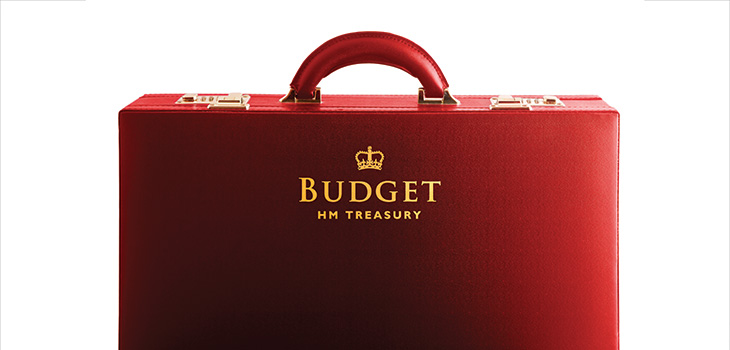*/

The UK economic outlook is far from bright. Despite a strong start to the year for the markets and the FTSE 100 reaching record highs, UK inflation remains sticky. As we approach the Autumn Budget, we are seeing weakening business spirit after the impact of tax increases and déjà vu among households, with a fear of the unknown creeping in.
There is little doubt that the Chancellor is under pressure from her party to raise revenue. Although Labour ruled out increases to income tax, employee national insurance contributions and VAT in its election manifesto, other levers can be pulled, fuelling expectations of tax rises on the horizon.
Potential tax-raising measures include extending the freeze on personal tax thresholds beyond April 2028, which could raise around £7 billion per annum. Further measures to limit tax avoidance could be introduced and changes to property taxation are also possible, such as creating an additional council tax band or increasing higher bands to raise up to £2 billion.
There has also been talk about reintroducing the lifetime allowance on pensions, as well as making changes to the level of tax-free cash available and changing annual savings allowances. However, these steps are not without risks and could make pensions less desirable as a long-term savings vehicle – just as it is becoming increasingly important to make personal provision for retirement.
The Treasury has been keen to encourage greater investment in UK markets. One suggestion which regularly crops up is a cap on cash ISAs to encourage more investment in equities ISAs.
More recently, there has been speculation that the Chancellor plans to reduce the ability to transfer wealth across generations during lifetimes, capturing more of the estate on death under the 40% Inheritance Tax band. There is also pressure for an annual wealth tax to be introduced, alongside tax on death.
With so many rumours in play, there is one thing we know for certain: we won’t know what the Chancellor will announce until 26 November. Without a crystal ball, and with the prospect of a number of damaging tax increases on the table, there is no easy solution to protect the assets you have worked hard to build.
Pre-Budget: As with last year’s Budget we were asked many difficult questions about what steps to take. Our advice remained constant – we cannot know what changes may come, so our best advice is to continue planning based on current legislation. Making changes based on speculation and clouded by panic in the run-up to the Budget is taking a huge gamble, and there is no way to know if it is the right decision.
Post-Budget: Once armed with knowledge of the changes, we can start to formulate plans for clients to make their estate as tax efficient as possible. Speak to a financial adviser and review your circumstances at this stage to make sure you are doing everything right for yourself and your family.
Some announcements made by the Chancellor might take immediate effect, but the UK tax system is hugely complex and tends to require some time to implement changes. Changes might not take effect until the new tax year, providing a potential window of opportunity.
If you have concerns in the run-up to the Budget, or want to review your plans following the event, contact us for a no-obligation meeting. We are built for the Bar and are here for all members, should you need us.

Tel: 01962 353153
Email: enquiries-westgate@sjpp.co.uk
Web: www.westgatewealth.co.uk/specialist-advice/the-bar
The value of an investment with St. James’s Place will be directly linked to the performance of the funds you select and the value can therefore go down as well as up. You may get back less than you invested.
The levels and bases of taxation, and reliefs from taxation, can change at any time and are generally dependent on individual circumstances.

The UK economic outlook is far from bright. Despite a strong start to the year for the markets and the FTSE 100 reaching record highs, UK inflation remains sticky. As we approach the Autumn Budget, we are seeing weakening business spirit after the impact of tax increases and déjà vu among households, with a fear of the unknown creeping in.
There is little doubt that the Chancellor is under pressure from her party to raise revenue. Although Labour ruled out increases to income tax, employee national insurance contributions and VAT in its election manifesto, other levers can be pulled, fuelling expectations of tax rises on the horizon.
Potential tax-raising measures include extending the freeze on personal tax thresholds beyond April 2028, which could raise around £7 billion per annum. Further measures to limit tax avoidance could be introduced and changes to property taxation are also possible, such as creating an additional council tax band or increasing higher bands to raise up to £2 billion.
There has also been talk about reintroducing the lifetime allowance on pensions, as well as making changes to the level of tax-free cash available and changing annual savings allowances. However, these steps are not without risks and could make pensions less desirable as a long-term savings vehicle – just as it is becoming increasingly important to make personal provision for retirement.
The Treasury has been keen to encourage greater investment in UK markets. One suggestion which regularly crops up is a cap on cash ISAs to encourage more investment in equities ISAs.
More recently, there has been speculation that the Chancellor plans to reduce the ability to transfer wealth across generations during lifetimes, capturing more of the estate on death under the 40% Inheritance Tax band. There is also pressure for an annual wealth tax to be introduced, alongside tax on death.
With so many rumours in play, there is one thing we know for certain: we won’t know what the Chancellor will announce until 26 November. Without a crystal ball, and with the prospect of a number of damaging tax increases on the table, there is no easy solution to protect the assets you have worked hard to build.
Pre-Budget: As with last year’s Budget we were asked many difficult questions about what steps to take. Our advice remained constant – we cannot know what changes may come, so our best advice is to continue planning based on current legislation. Making changes based on speculation and clouded by panic in the run-up to the Budget is taking a huge gamble, and there is no way to know if it is the right decision.
Post-Budget: Once armed with knowledge of the changes, we can start to formulate plans for clients to make their estate as tax efficient as possible. Speak to a financial adviser and review your circumstances at this stage to make sure you are doing everything right for yourself and your family.
Some announcements made by the Chancellor might take immediate effect, but the UK tax system is hugely complex and tends to require some time to implement changes. Changes might not take effect until the new tax year, providing a potential window of opportunity.
If you have concerns in the run-up to the Budget, or want to review your plans following the event, contact us for a no-obligation meeting. We are built for the Bar and are here for all members, should you need us.

Tel: 01962 353153
Email: enquiries-westgate@sjpp.co.uk
Web: www.westgatewealth.co.uk/specialist-advice/the-bar
The value of an investment with St. James’s Place will be directly linked to the performance of the funds you select and the value can therefore go down as well as up. You may get back less than you invested.
The levels and bases of taxation, and reliefs from taxation, can change at any time and are generally dependent on individual circumstances.


The Bar Council is ready to support a turn to the efficiencies that will make a difference
By Louise Crush of Westgate Wealth Management
Marie Law, Director of Toxicology at AlphaBiolabs, examines the latest ONS data on drug misuse and its implications for toxicology testing in family law cases
An interview with Rob Wagg, CEO of New Park Court Chambers
What meaningful steps can you take in 2026 to advance your legal career? asks Thomas Cowan of St Pauls Chambers
Marie Law, Director of Toxicology at AlphaBiolabs, explains why drugs may appear in test results, despite the donor denying use of them
The appointments of 96 new King’s Counsel (also known as silk) are announced today
Ready for the new way to do tax returns? David Southern KC continues his series explaining the impact on barristers. In part 2, a worked example shows the specific practicalities of adapting to the new system
Resolution of the criminal justice crisis does not lie in reheating old ideas that have been roundly rejected before, say Ed Vickers KC, Faras Baloch and Katie Bacon
With pupillage application season under way, Laura Wright reflects on her route to ‘tech barrister’ and offers advice for those aiming at a career at the Bar
Jury-less trial proposals threaten fairness, legitimacy and democracy without ending the backlog, writes Professor Cheryl Thomas KC (Hon), the UK’s leading expert on juries, judges and courts